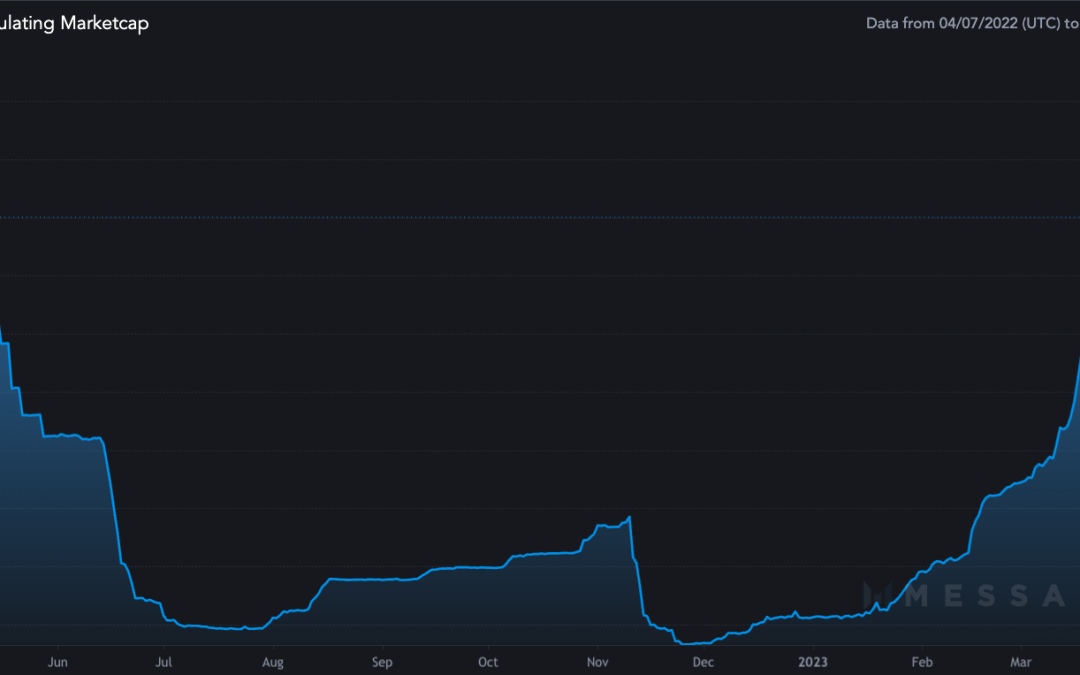Tether (USDT) continues to benefit from the ongoing turmoil in the U.S. dollar-backed stablecoin industry, with its market capitalization growing significantly in Q1 2023 at other stablecoins’ expense.
Tether market cap reaches $80 billion
On April 6, the circulating market capitalization of USDT surpassed $80 billion for the first time since May 2022, with a gain of $15 billion so far in 2023.
On the other hand, the market caps of its chief rivals, namely USD Coin (USDC) and Binance USD (BUSD), fell by about $12 billion and $9.4 billion, respectively.

Tether benefits from non-U.S. status
Crypto traders opted for Tether given the growing concerns around USD Coin and Binance USD.
Notably, USDC’s market capitalization slipped due to its $3.3 billion exposure to the now-collapsed Silicon Valley Bank and additional exposure to Silvergate Bank, while BUSD suffered after New York regulators ordered Paxos to shut down the stablecoin’s issuance.
USDC weathered the crisis after the Federal Deposit Insurance Corporation’s assurance that it would make depositors at the insolvent banks whole. As a result, the stablecoin recovered its dollar peg after losing it at the peak of the banking crisis in mid-March.

But a growing crypto crackdown in the U.S. has prompted investors to maintain distance from regional firms. For instance, Paxos confirmed that the Securities and Exchange Commission treats BUSD as an unregistered security.
On the other hand, Tether is a non-U.S. firm and has repeatedly assured that it has no exposure to insolvent U.S. banks. Nonetheless, it has faced scrutiny over its reserve assets and lack of proper audits for years, despite such issues becoming less of a concern among traders.
USDT supply drops across exchanges
Interestingly, the growth in the USDT circulating supply has coincided with a drop in its supply across exchanges.
Related: USDT issuer Tether has up to $1.7B in excess reserves, CTO says
Tether’s balance on exchanges has dropped 28% year-to-date to 12.88 billion USDT, according to Glassnode. In comparison, the aggregated stablecoin balance across exchanges has dropped by 41% YTD to $22.31 billion.

The decline in stablecoin reserves coincides with a crypto market rally, suggesting that traders have been converting their crypto dollars to buy Bitcoin (BTC) and Ether (ETH).
This article does not contain investment advice or recommendations. Every investment and trading move involves risk, and readers should conduct their own research when making a decision.














